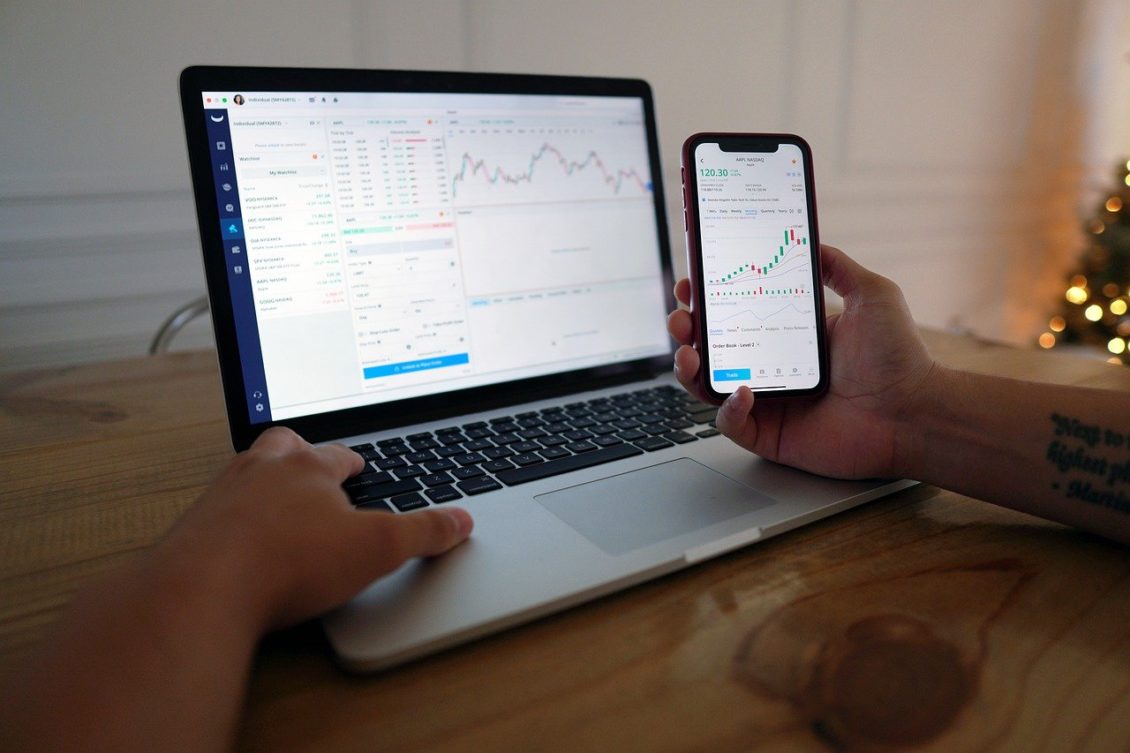If you’re thinking about trading forex for the first time, there are a few things you need to know before getting started. Forex, or foreign exchange, is a global market where traders buy and sell currencies. It can be a great way to make some extra money, but it’s important to understand the risks involved before investing your hard-earned money. In this blog post, we’ll discuss everything you need to know before starting out in the world of forex trading!
What is Forex Trading?
Forex, or foreign exchange, trading is the buying and selling of currencies on the global market. It’s essentially a way to make money by betting on the movement of different currencies around the world. For example, if you think that the euro is going to be stronger than the dollar in the next few months, you might buy euros now and sell them later when their value has increased.
This type of trading can be profitable if you’re good at predicting future currency movements, but it’s also risky – so it’s important to understand all of the risks involved before getting started.
How Does Forex Trading Work?
The forex market is always happening, 24 hours a day, five days a week. This means that traders can buy and sell currencies at any time of the day or night. Currencies are traded in pairs, so when you buy a currency, you’re also selling another currency.
For example, if you buy euros, you’re selling dollars. The value of each currency is always relative to the other – so when the euro gets stronger against the dollar, the value of the euro goes up, and vice versa.
What Currency Pairs Can I Trade?
There are dozens of different currency pairs available for trading on the forex market. Some of the most popular include:
- EUR/USD – Euro vs US Dollar
- GBP/USD – British Pound vs US Dollar
- USD/JPY – US Dollar vs Japanese Yen
- USD/CAD – US Dollar vs Canadian Dollar
- AUD/USD – Australian Dollar vs US Dollar
- NZD/USD – New Zealand dollar against the US dollar.
You can trade in any of these currencies, as well as a number of other common currency pairs. You can also trade less common currency pairs like CHFSEK (Swiss francs against Swedish krona) and CADTRY (Canadian dollars versus Turkish lira).
How Much Money Do I Need to Trade Forex?
You don’t need a lot of money to get started in forex trading – some brokers even let you trade with as little as $100. However, it’s important to remember that trading involves risk, and you can lose money if you’re not careful.
What is the Best Forex Broker?
Choosing a forex broker can be difficult because there are so many options available and not all of them offer the same features or services. It’s important to do your research before choosing an online forex broker, as each one offers different benefits and drawbacks depending on what type of trader you want to become in future years. The best forex broker for you may not be the best for someone else, so understanding what each broker can offer is important and will help you choose the best one for you.
How Do I Choose Leverage?
Leverage is a tool that allows traders to maximize their profits by increasing risk exposure without adding more capital into the market. For example, if someone has $100 worth of euros but wants $200 worth at any given time – they could use leverage to do this without actually having $200 on hand.
The amount of leverage available differs between brokers, so it’s important to choose one that offers the best terms for your trading needs. Leverage can also be set manually by traders who want more control over their risk exposure levels (and less reliance on margin calls).
Forex Terminology
The forex market has its own jargon and terminology that can be confusing for new traders. Here are some common terms you should know:
- Ask price – The current value of a currency pair in the marketplace, based on supply and demand levels.
- Bid/ask spread – The difference between what buyers will pay (bid) versus sellers want (ask). This is also known as “the spread”.
- Base currency – One of two currencies involved in any given trade; it’s always listed first when looking at exchange rates or quotes from brokers online. For example, if someone wants to buy Euros with US dollars, the base currency would be Euros while USD is considered against EURO because we’re looking at how much people pay per Euro.
- Cross currency pair – A pairing where the base currency is not the US dollar, such as EUR/GBP or JPY/CHF.
- Exchange rate – The value of one currency in terms of another, typically listed as a three-letter code (i.e. USD) and updated regularly throughout the day by banks, brokers, and other financial institutions.
- Margin call – When a trader’s account falls below the required margin level set by their broker, they will automatically receive a margin call to bring their account back up to par, as explained by Investopedia. This usually happens when prices move against an open trade, causing losses that can’t be covered with available funds in the account.
- Pip value – A pip is the smallest unit of measurement in forex trading. Pips are usually quoted as four decimal places, so a pip value of 0.0001 would mean that one could purchase one US dollar for every 100.00 yen. Pip values can vary depending on the currency pair you’re trading, so it’s important to be aware of the pip value before you start trading.
- Quote currency – The second currency listed in any given forex quote; this tells how much one unit of base currency will cost when purchased with the quote (or “counter”) currency. For example, if EUR/USD has an exchange rate of 0.90, then you’ll need $0.90 to buy €100 worth from Eurozone countries (which are part of Europe but not all).
- Stop loss order – A type of trade order that automatically triggers once prices reach certain levels specified by traders ahead of time, so they won’t have to watch their positions continuously throughout market hours.
Final Thoughts
Forex trading can be a great way to make extra money or even become a full-time career, but it’s important to remember that there is always risk involved. Make sure you do your research before choosing a broker and start out with smaller trades until you feel comfortable with the process. Happy trading!









Leave a Reply
View Comments